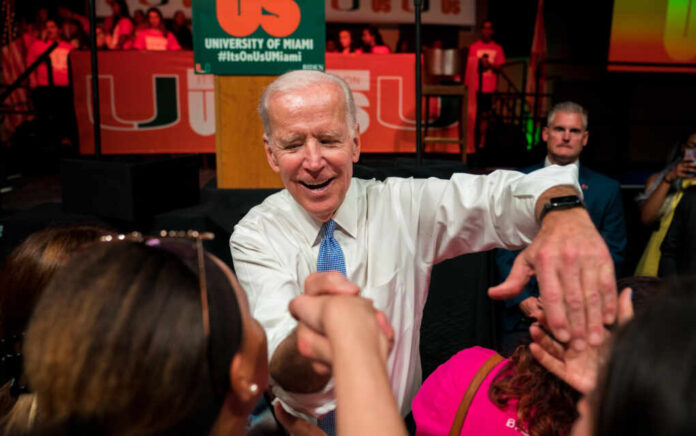
Barack Obama’s presidency created the political conditions that helped propel Donald Trump to the White House, with tensions between Obama and Biden now revealing deeper implications for the 2024 election.
At a Glance
- Obama reportedly suggested Biden should only serve one term, creating lasting resentment between the two Democratic leaders
- Trump built his political identity largely by opposing Obama’s policies, particularly targeting the Affordable Care Act and environmental regulations
- Biden’s endorsement of Kamala Harris was reportedly partly motivated by a desire to “stick it to Obama” who had reservations about Harris
- Despite Trump’s efforts, much of Obama’s legacy proved resilient, with policies like DACA surviving due to court rulings
- The relationship between Obama and Biden influenced Democratic politics in ways that may have inadvertently strengthened Trump’s position
The Obama-Biden Divide That Shaped Modern Politics
The complex relationship between Barack Obama and Joe Biden has emerged as a significant factor in the political landscape that elevated Donald Trump. According to reporting from Jonathan Allen and Amie Parnes, Obama privately expressed concerns about Biden’s age, suggesting it “made the most sense” for Biden to serve only one term rather than “test fate again at eighty-one years old.”
This advice apparently created lasting tensions between the former president and his vice president, with Biden’s inner circle harboring resentment toward Obama that would later influence critical decisions about the future of the Democratic Party.
Biden reportedly measured his own presidency against Obama’s, frequently celebrating accomplishments by saying “Obama would be jealous.” This competitive dynamic suggests Biden was determined to emerge from his predecessor’s shadow, even at the cost of party unity. The pattern of one-upmanship extended beyond policy to personnel decisions, most notably when Biden endorsed Kamala Harris for the 2024 nomination following his withdrawal from the race. Sources close to both men characterized this move as a deliberate rebuke to Obama.
Trump’s Campaign Against Obama’s Legacy
Donald Trump built much of his political identity around dismantling Barack Obama’s presidential achievements. During his 2016 campaign, Trump promised to “cancel every unconstitutional executive action, memorandum and order issued by President Obama.” This antagonistic approach resonated with voters who felt left behind by Obama-era policies or who opposed them on ideological grounds. Trump’s strategy effectively positioned him as the anti-Obama candidate, offering a stark alternative to the previous eight years of Democratic leadership.
Once in office, Trump targeted Obama’s signature accomplishments, particularly the Affordable Care Act. Despite what Biden once called a “big fucking deal” in healthcare reform, Republicans under Trump launched multiple repeal attempts. However, these efforts largely failed due to legislative complexities and growing public support for many ACA provisions. Similar patterns emerged with other Obama initiatives—Trump would announce their reversal with great fanfare, but the actual dismantling proved more difficult than anticipated.
In environmental policy, Trump withdrew from the Paris Climate Agreement and replaced Obama’s Clean Power Plan with the less stringent Affordable Clean Energy plan. On immigration, he attempted to end the Deferred Action for Childhood Arrivals (DACA) program, though the Supreme Court ultimately blocked this effort. These policy battles illustrated how Trump defined his presidency largely in opposition to Obama’s vision for America, an approach that continued to energize his base throughout his term.
Here is an opinion piece from Monday Apr 21, 2025 in the WSJ. So now that you have figured out he is a bumbling idiot, rather than brilliant or evil, let's go with that. Let's all agree we need to get him out of government as quickly as possible so that we can continue to be a…
— Rodney Brooks (@rodneyabrooks) April 22, 2025
The Racial Element in Trump’s Rise
Obama’s election as the first Black president represented a significant racial milestone in American history. His presidency sparked both celebration and backlash, with the latter creating fertile ground for Trump’s more divisive approach to racial issues. When speaking about Trayvon Martin, Obama observed that the slain teenager “could have been my son,” a remark that humanized racial violence for many Americans but was criticized by others as inserting presidential influence into a judicial matter.
Trump’s political rise coincided with increasing polarization around racial justice issues. Where Obama attempted to address America’s racial divisions through dialogue and policy reform, Trump often dismissed such concerns or characterized racial justice movements as threats to law and order. This stark contrast in approaches gained Trump support among voters uncomfortable with the nation’s evolving conversations about race, creating a reactionary constituency that helped propel him to victory in 2016.
Some analysts have drawn parallels between the transition from Carter to Reagan and from Obama to Trump, suggesting Democratic presidents who push progressive agendas may inadvertently create the conditions for conservative backlash. The polarization that characterized Obama’s presidency—despite his initial promise of post-partisan leadership—created deep divisions that Trump successfully exploited, turning perceived weaknesses in Obama’s approach into campaign strengths that resonated with millions of American voters.

























